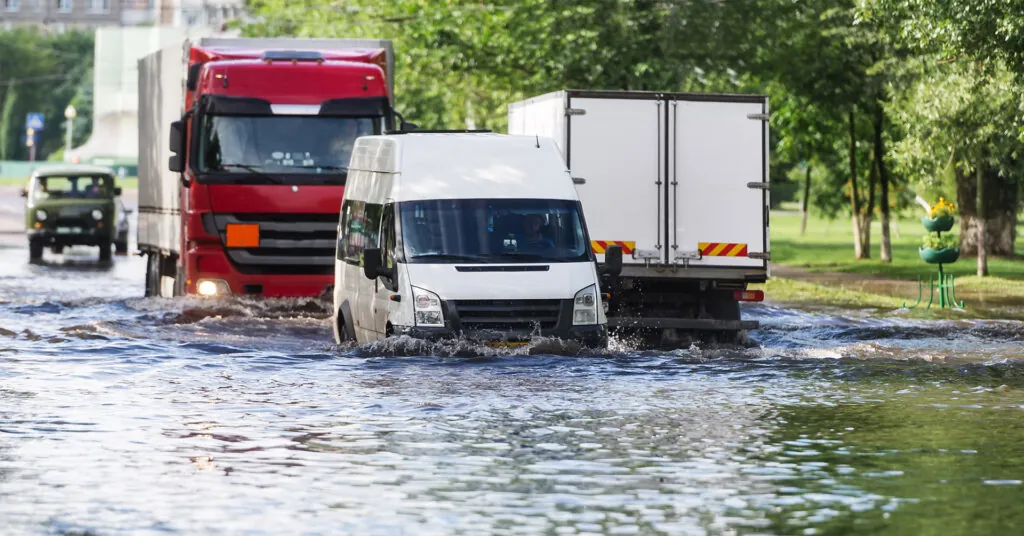Flash Flood Emergency Response Plan: Protecting Your Family And Property

Table of Contents
Understanding Flash Flood Risks
Understanding your risk is the first step in effective flash flood preparation. Knowing the warning signs and identifying potential danger zones will significantly improve your chances of survival and minimize damage to your property.
Identifying High-Risk Areas
Geographical factors significantly influence flash flood risk. Proximity to rivers, steep slopes, and areas with poor drainage systems all increase vulnerability. Urban areas with inadequate stormwater management infrastructure are particularly susceptible.
- Examples of high-risk areas: Areas near rivers and creeks, canyons and ravines, low-lying areas, and regions with impermeable surfaces (like paved roads and parking lots).
- Identifying risk using resources: Utilize FEMA flood maps (available online at FEMA.gov), your local government's website (many provide flood risk maps and information), and consult with your local emergency management office.
Recognizing Flash Flood Warning Signs
Recognizing the early signs of a flash flood can be crucial for timely evacuation and protection. Stay alert for these indicators:
- Visual cues: Rapidly rising water levels in rivers and streams, overflowing storm drains, unusual water accumulation in low-lying areas, and debris flowing in waterways.
- Weather alerts: Pay close attention to weather forecasts and warnings issued by the National Weather Service. A flash flood watch means conditions are favorable for flash flooding, while a flash flood warning indicates that flash flooding is occurring or is imminent.
Building a Home Inventory
Creating a detailed home inventory is vital, not just for sentimental reasons, but also for insurance purposes. A thorough inventory simplifies the claims process in the aftermath of a disaster.
- Inventory methods: Take detailed photos and videos of your possessions, including serial numbers and purchase dates. Maintain a spreadsheet with item descriptions, purchase dates, and estimated values.
- Safe storage: Store your inventory digitally using cloud storage services for easy access and redundancy in case of physical damage.
Creating Your Flash Flood Emergency Response Plan
Creating a comprehensive plan ensures your family is prepared and knows what to do in case of a flash flood. This involves establishing clear evacuation routes, assembling an emergency kit, and securing your property.
Developing an Evacuation Plan
Plan multiple evacuation routes, considering potential road closures and traffic congestion. Designate a safe meeting place outside the flood-prone area.
- Choosing safe routes: Identify high ground and areas less susceptible to flooding. Avoid low-lying areas, bridges, and underpasses.
- Communication: Establish a communication plan with family members, including a designated contact person who can relay information.
Assembling an Emergency Kit
Prepare a well-stocked emergency kit containing essential supplies for several days. This is your lifeline in a crisis.
- Essential supplies checklist: Water (one gallon per person per day), non-perishable food, first-aid kit, essential medications, flashlights, extra batteries, a portable radio (hand-crank or battery-powered), and copies of important documents (identification, insurance policies).
- Sufficient supplies: Aim for at least a three-day supply of essential items, considering family size and individual needs.
Securing Your Property
Taking steps to secure your property can minimize damage during a flash flood.
- Protecting valuables: Move important documents, electronics, and other valuable items to higher ground. Disconnect electrical appliances to prevent electrocution.
- Flood barriers: If time allows, consider using sandbags or other flood barriers to protect vulnerable areas of your home.
Responding to a Flash Flood Emergency
Knowing how to respond during and after a flash flood is paramount to safety.
Evacuating Safely
If a flash flood warning is issued, evacuate immediately. Never attempt to drive through floodwaters.
- Evacuation procedures: Follow instructions from emergency personnel. Seek higher ground and move away from flood-prone areas.
- Trapped by floodwaters: If trapped, seek refuge on the roof or a higher level of a structure. Call for help and signal for assistance.
Seeking Shelter
If evacuation isn't possible, seek shelter in a sturdy building on higher ground. Avoid basements.
- Shelter locations: Stay informed about designated shelters in your area. Follow instructions from emergency services.
- Emergency personnel: Cooperate with and follow instructions from emergency personnel.
Post-Flood Actions
After the flood, prioritize safety and begin assessing the damage.
- Contacting authorities: Report damage to your local authorities and insurance company.
- Safe cleanup: Avoid contact with floodwaters due to potential contamination. Wear protective gear during cleanup and seek professional help for extensive damage.
Conclusion
A proactive Flash Flood Emergency Response Plan is not just a suggestion; it's a critical safeguard for your family and property. By understanding the risks, preparing an effective evacuation plan, assembling an emergency kit, and taking proactive measures to secure your property, you significantly reduce your vulnerability to flash floods. Remember the importance of having a well-defined plan, including post-flood procedures. Don't wait until it's too late. Create your comprehensive flash flood emergency response plan today and protect your loved ones and your home.

Featured Posts
-
 Top 5 Hudson Valley Restaurants For Shrimp
May 26, 2025
Top 5 Hudson Valley Restaurants For Shrimp
May 26, 2025 -
 Lock Up Season 5 A Guide To The Best Action Episodes
May 26, 2025
Lock Up Season 5 A Guide To The Best Action Episodes
May 26, 2025 -
 Chainalysis Expands With Ai Agent Startup Alterya Acquisition
May 26, 2025
Chainalysis Expands With Ai Agent Startup Alterya Acquisition
May 26, 2025 -
 Sarah Vines Whats App Gaffe How To Recover From A Messaging Mistake
May 26, 2025
Sarah Vines Whats App Gaffe How To Recover From A Messaging Mistake
May 26, 2025 -
 2025 Paris Roubaix Gravel Bike Technology And Tyre Developments
May 26, 2025
2025 Paris Roubaix Gravel Bike Technology And Tyre Developments
May 26, 2025
